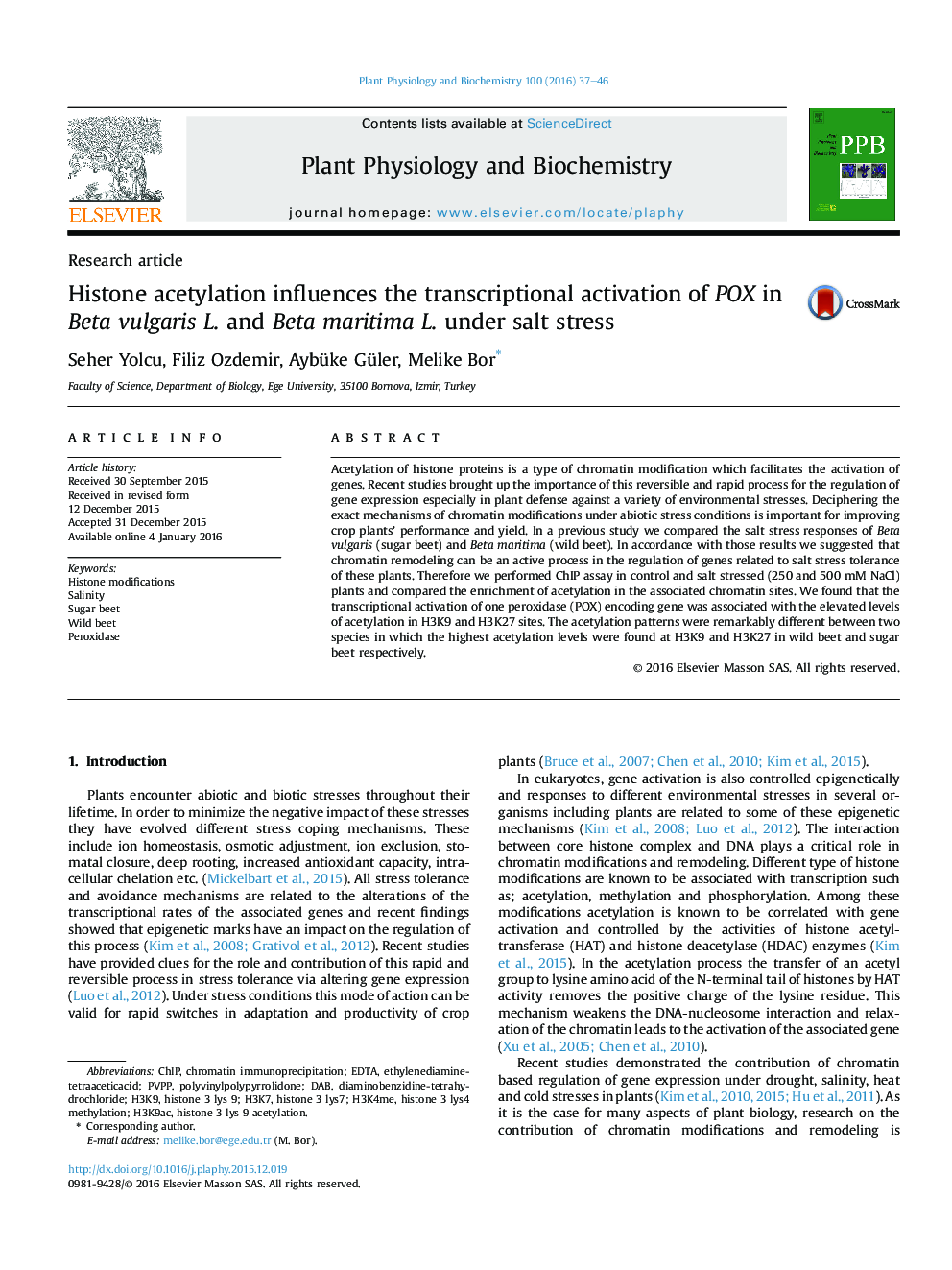| Article ID | Journal | Published Year | Pages | File Type |
|---|---|---|---|---|
| 2015798 | Plant Physiology and Biochemistry | 2016 | 10 Pages |
•Beta vulgaris and Beta maritima have high constitutive and induced antioxidant capacity.•Acetylation, a type of chromatin remodeling used for gene activation in plants.•Salt stress affected acetylation patterns of POX gene leading to high expression.•H3K9 and H3K27 acetylation activated POX gene in B. vulgaris and B. maritima.
Acetylation of histone proteins is a type of chromatin modification which facilitates the activation of genes. Recent studies brought up the importance of this reversible and rapid process for the regulation of gene expression especially in plant defense against a variety of environmental stresses. Deciphering the exact mechanisms of chromatin modifications under abiotic stress conditions is important for improving crop plants’ performance and yield. In a previous study we compared the salt stress responses of Beta vulgaris (sugar beet) and Beta maritima (wild beet). In accordance with those results we suggested that chromatin remodeling can be an active process in the regulation of genes related to salt stress tolerance of these plants. Therefore we performed ChIP assay in control and salt stressed (250 and 500 mM NaCl) plants and compared the enrichment of acetylation in the associated chromatin sites. We found that the transcriptional activation of one peroxidase (POX) encoding gene was associated with the elevated levels of acetylation in H3K9 and H3K27 sites. The acetylation patterns were remarkably different between two species in which the highest acetylation levels were found at H3K9 and H3K27 in wild beet and sugar beet respectively.
